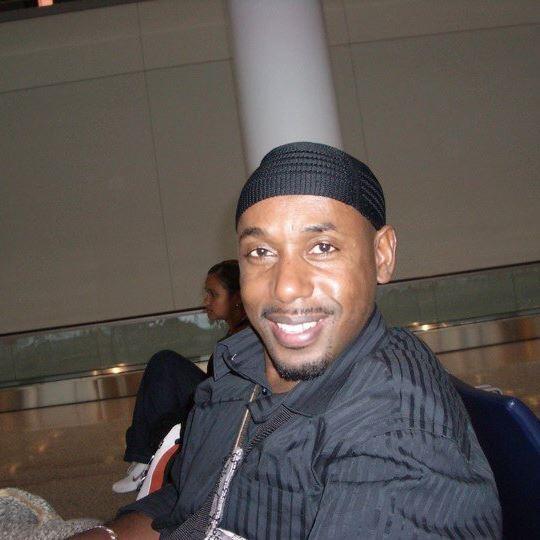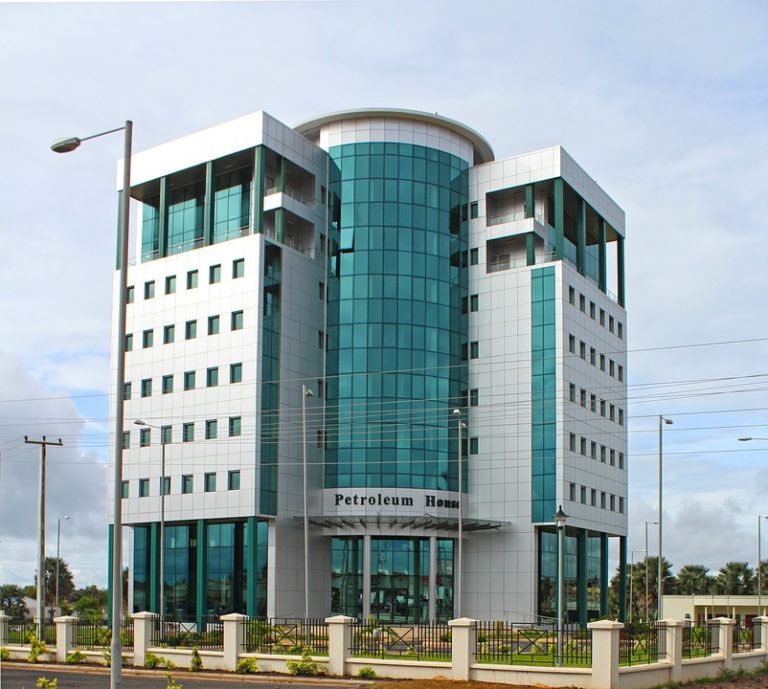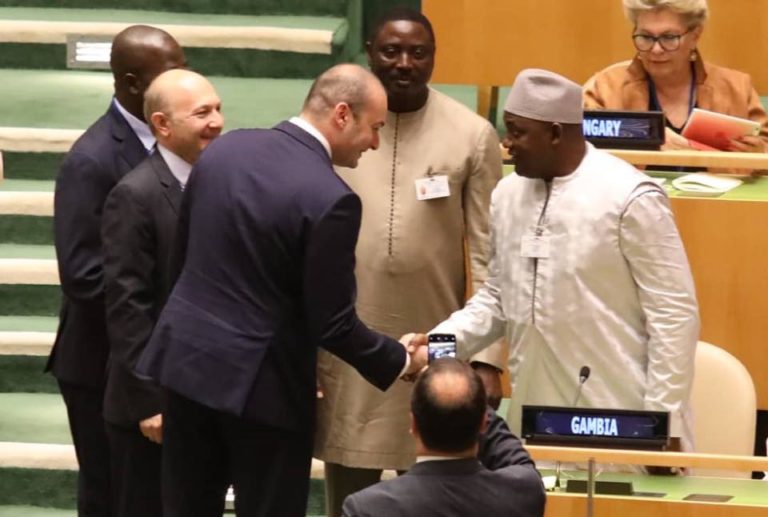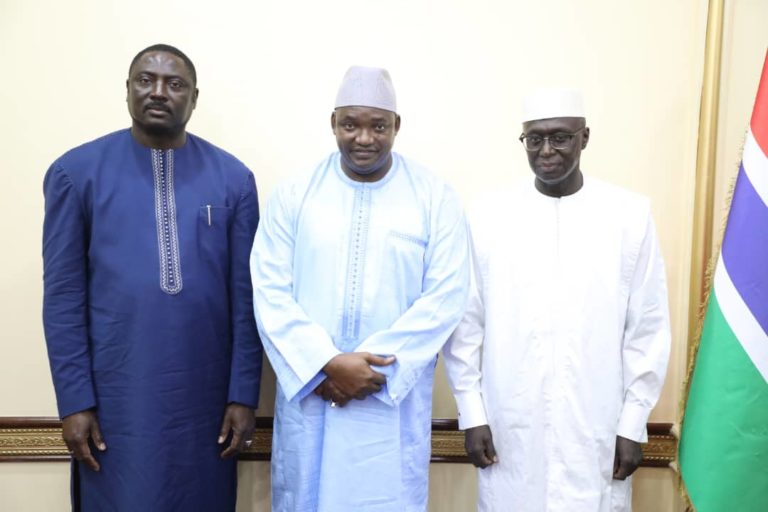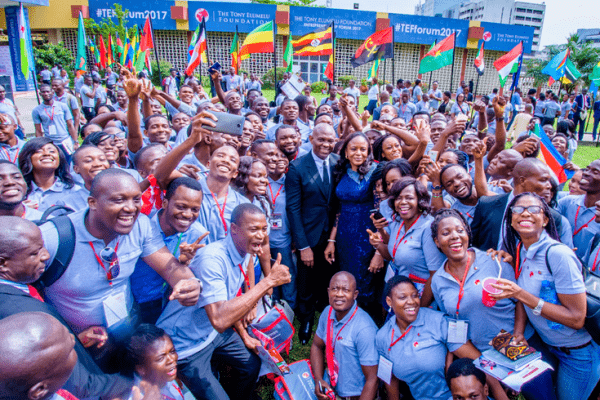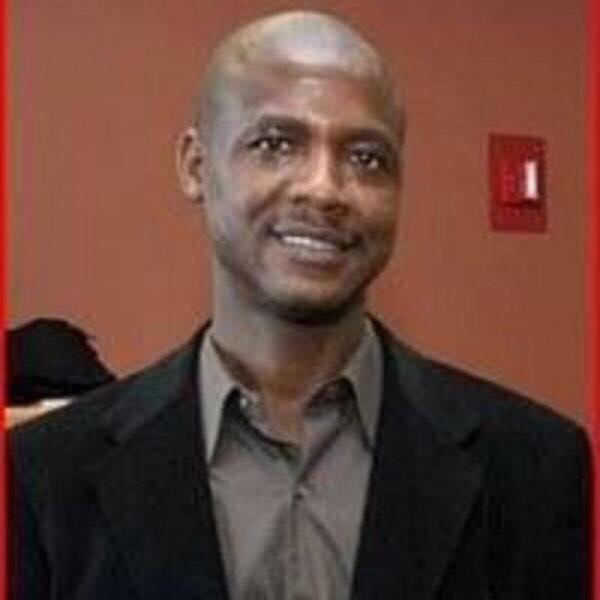The Lord Mayor of Banjul, Rohey Malick Lowe will be commemorating her 100th days in office tomorrow, 4th October.
What has she achieved or has she fulfilled her campaign promises? Here is an excerpt.
Mayor Rohey Lowe celebrating her 100th day in office: What do the Banjul natives need?
Gambia Democracy Fund Audit
PRESS RELEASE
The Gambia Democracy Fund better known by its acronym – GDF – was established in 2014 as a conduit to raise funds from Gambians and friends of The Gambia living in the diaspora for the purpose of financing the political campaign against the entrenched dictatorship at home.
Recognizing the limited financial means of opposition parties that hindered the mounting of an effective grassroots campaign against an increasingly brutal and corrupt dictatorship, it was soon recognized the need for the establishment of such a fund to help finance the upcoming presidential, parliamentary and municipal elections scheduled for the 2016 – 2017 political season.
Gambians and friends of The Gambia responded swiftly and generously to the call to action by contributing what turned out to be the single most important source of funding for the Coalition of seven opposition parties and an independent presidential candidate. A single presidential candidate emerged as a result, partly attributable to the creation of the GDF which effectively became the financing arm of the unified political opposition to the regime of Yahya Jammeh.
The defeat of the 22-year dictatorship of Yahya Jammeh in the December 1st 2016 presidential elections signaled the attainment of the primary objective of the existence of GDF. Like any project, more so one financed through private contributions, we owe contributors to the GDF an account of how their contributions were utilized to allay any fears by assuring them that their hard-earned monies were appropriately applied as we promised.
To achieve this end, an Audit Team has been formed comprising of Messrs. Alhagie Sowe, Ousainou Ngum, Dr. Lamine Conteh and Babou Sallah Njie for the purposes of auditing the books, including but not limited to, all funds remitted to The Gambia for the 2016 Coalition.
The Audit Team encourages all contributors and non-contributors alike to contact them at their official email address: [email protected] with any information that will help them achieve their audit task.
The Gambia’s Petroleum Situation: Here Is What We Know
Since it was announced that an independent, Africa focused, Australian Securities Exchange listed, Oil and gas exploration and development Company, FAR Limited is to start drilling the first well in many years, there has been lots of questions on the minds of many Gambians.
The Fatu Network in trying to find answers, spoke to authoritative sources who brought clarity and provided answers to many lingering questions. Here we summarize some useful information we believe will provide an insight into the sector.
We learnt that petroleum exploration has been ongoing in The Gambia since the 50s, but it intensified in the early 2000s when 3D seismic volume was acquired in 2003. That is said to have reignited interest in Gambia leading to the grant of an exploration licence to Buried Hill in 2006 and ERIN energy Corporation in 2012 who was then called CAMAC. Erin Energy Corporation is an independent oil and gas exploration and production company focused on energy resources in sub-Saharan Africa.
Driven to a large extent by the availability of data, in 2004, a petroleum bill was enacted and it provided the legal framework for the administration and regulation of Petroleum exploration activities
Do We have Oil In The Gambia?
We learnt that as of today, there is no oil discovered in Gambia. The well that is expected to be drilled will determine whether there is oil or not in that particular area. The Drilling operations is expected to last for about 45 days and will cost FAR Limited about $40 million US dollars.
Once oil is discovered after this drilling, the next stage would be the appraisal stage where amongst others, quality and quantity of the oil will be determined as well as economic viability of extracting the oil. The appraisal stage can costs hundreds of millions of dollars and takes 3-5 years to complete.
The next stage after appraisal is development, this is the process where infrastructures needed will be put up to start extracting the oil. This process takes 3-4 years and can cost billions of US dollars in an offshore (in the sea) environment. Once the infrastructure is in place, the next stage is normally production during which the oil is taken out of the ground and transported to the market to be sold.
On the other hand if oil is not discovered, the oil company that has invested millions of dollars will lose their investment.
From the figures quoted above it is clear that exploration is highly capital intensive and high risk, hence the main reason why Governments do not like funding the process. The level of risk and capital requirements also explains why the reward is high which goes to confirm the truism that ‘no pain no gain’. Oil companies take the risk and invest their capital in anticipation of reward when the efforts are successful.
Who Has Petroleum Exploration License in the Gambia?
The Gambia Government gave a petroleum exploration license to ERIN Energy Corporation and ERIN ended up selling 80% to FAR Limited. FAR farmed-out(sold)40% to PETRONAS Global, the custodians of Malaysia’s national oil and gas resources. Farm outs are transfers of shares in a licence through which one party transfers interest in a license to another party and often in-return for performance of certain work commitments or paying part of a certain cost in relations to the said license. Such transactions are said to be common practice in oil and gas industry during exploration, appraisal, development or production stages. It shares risk!
ERIN Energy’s license covers two blocks A2 and A5 (these are areas in the Atlantic ocean not in Kiang). Right now another six blocks are in the process of being licensed with ten companies already shortlisted including FAR Limited and Tullow Oil. I understand that the Gambia Government has also established a national petroleum negotiation committee comprising of key government institutions working on legislation and structures and also to manage the process of blocks licensing.
What is Government’s share?
A lot has been said about Government’s shares in these licenses, but this is what I learnt and I believe will be of interest to many Gambians. I said earlier that due to the risk and capital intensity of exploration, governments do not want to put any hard earned tax payers monies that could be otherwise spent on deserved social needs of the population into a risky business.What government instead did is to agree with the exploration companies that once oil is found and development starts, then Gambia has the option to take 15% of the interest. This is done by each of the interest holders giving up percentages proportional to the shares to add up to give government its 15%.
In addition, to this I learnt that government will also be entitled to a certain percentage as royalty as well as different taxes such as corporate tax, income tax, withholding tax etc. These revenue streams all put together will result in government getting over 50% of positive cash flow.
I hope these findings will shed some light on the workings of the petroleum activities. We will update you as we dig more into this issue.
African Sports Journalists on age cheating in Africa, causes and solutions
By Omar Jarju
Age cheating in African Football is becoming a huge effect on football clubs and National teams across the continent that many at times lead to unrolling performances.
The major and latest setback is suffered by Nigeria U17 Golden Eaglets with 15 of the 40 players listed for the final team selection all failed the mandatory MRI age-test ahead of their zonal qualifiers in Niger next month.
The development is a recollect of that of two years ago when as many as 23 players failed the age test so much so that the five-time world champions Ghana equally failed to qualify for the U17 AFCON in Rwanda.
In 2009 when as newly-crowned African champions for the second time, more than half of the Gambian team were found to be overage and therefore disqualified when the Fifa Under-17 World Cup used the MRI technology for the first time to prove the age of players.
The cause of this has now send shockwaves as to what the future now holds for the growth of African football.
Meanwhile, here are the taught of some African sports Journalists on the causes of age cheating and possible solutions to this problem.
Abdoulie Bah: a multiple award winning Gambian sports journalist host, now based in the US. I think we can deal with the problem of age cheating in African football to some extend by using modern technology like the MRI test. But while that will reduce the opportunity of age cheating, I have to say that it wouldn’t eliminate it at all. I think we should stop making excuses for intentional cheating in football. We have to try to improve the financial status of clubs, I think this is the root cause of everything because clubs are so poor in African football that they try to rush the development of their players. We also have to improve the data saving methods of our league organizers, be it the football federation and the continental bodies should be able to have ways of detecting people who enter double age in difference competitions. Finally, we have to expose and ban football officials who are corrupt because some of these things are caused by football officials. Go everywhere around Africa, technical Directors, coaches and other officials who have connections to national teams try to accept bribes from especially young talents that are coming from Europe of African descent. Some of them don’t have any opportunity to represent their adopted countries, so of some officials take bribes to accept these people to that national teams.
EMEKA, a Nigerian Journalist- Age cheating in African football in a big program and it doesn’t allow our footballers get to their great potentials. For the case of Nigeria, they’ve won the U17 world cup for five times, more than any other country in the world. But unfortunately, the same Nigeria had failed to win the U20 world cup let alone getting into the quarter final of the FIFA world cup at senior level. What this means is that, in Nigeria they use a lot over age players to player under age competitions. At the end of the day, you see a 27 year old playing as an U17 and by the time he is 20 years old, he already passed his time and at the end of the day, he doesn’t get to realize his full potential. So, it’s a general process in Africa and we have to look at ways to fix it.
MICHAEL OTI ADJEI, BBC Sports Reporter in Ghana- Well, I think is pretty obvious that when players cheat at the very early stage, shows a case of dishonesty in them. From that moment, there is nothing right about them because they know that they can’t fix a passport, you can cheat your way into the highest level. If I look at the way African players have raised into the top level in Europe, I’m not sure that age cheating is impacting on their long term careers. This is a serious thing in African football, and we can fix by exposing those involved in it.
UN General Assembly: President Barrow wants a ‘transformed’ Gambia
State House, 26thOctober2018
His Excellency, President Adama Barrow has told the United Nations that since Gambians voted for change in 2016 by bringing him into office, his government has been working hard to deliver a fully transformed Gambia that is energy secured, food self-sufficient and investment friendly. “In all, our goal is to deliver a fully transformed Gambia that has a future,” he told the world body.
The President and delegation traveled to New York, US, last week to participate in the 73rdOrdinary Session of the United Nations General Assembly – a body that rendered full support when the country called for the global assistance in response to a political impasse that nearly put the country on a collision course with violent conflict about two years ago. Today, the President stood before them to express delight that Gambians have managed to restore democracy and the rule of law in their country.
He opined that a key reason Gambians voted for change in December 2016 was that they actually yearned to be in charge of their own destiny. “They wanted significant, not cosmetic improvements in their lives. It is for this reason that my government is now implementing a comprehensive National Development Plan (2018-2021). The Plan seeks to transform The Gambia through key priorities, such as infrastructural development, agricultural transformation, macroeconomic stability, job creation, andemployment,” he told the UN body in his contribution to the general debate.
The National Development Plan, which is the country’s development blueprint, was designed to consolidate democratic gains through good governance, rule of law and respect for human and people’s rights. President Barrow said his government is resolutely pursuing institutional and constitutional reforms with the hope of putting The Gambia on a solid path to becoming a shining champion of democracy and human rights in the world.
Under two years in office, the President reported that his government has begun exploiting and harnessing the benefits of Information Communication Technology as a catalyst for modernization and youth empowerment.
The President also used the opportunity to highlight the value that his government placed on the Gambian Diaspora and how they fit into his development agenda. “In our pursuit for a fully transformed Gambia, we recognize the importance of a meaningful engagement with The Gambian Diaspora – fondly referred to as ‘The Eighth Region of The Gambia’. Our Diaspora strategy seeks to explore and utilize the skills, talent, andresources of Gambians everywhere for the successful implementation of the National Development Plan,” he said, noting that the Plan is consistent with the Agenda 2030 on Sustainable Development, as well as the African Union Agenda 2063.
While pointing out that The Gambian experience demonstrates that democracy yields positive dividends, the president called for strong international support to consolidate the remarkable gains, particularly to curb migration and create more job opportunities.
‘’Remarkably, we have noticed a decrease in the number of youths attempting to undertake dangerous journeys across the Mediterranean to Europe. The average Gambian is willing to stay in the country and contribute to national development. Despite these positive developments, I strongly urge that interventionsto curb youth migration be supported through incentives. Better educational and job opportunities must be harnessed for the youth in order to inspire them and give them hope in life’’.
Senegal-Gambia Relations to Take New Heights – New Senegambian Ambassador
State House, Banjul, 2ndOctober, 2018 –The new Ambassador and Executive Secretary of the Senegalo-Gambia Permanent Secretariat in Banjul has said that their Excellences, Presidents, Adama Barrow, andMacky Sall, of The Gambia and Senegal, respectively, are very committed to taking the relations between their two countries to higher heights.
Ambassador Seck was at the State House to pay a courtesy call on President Barrow for the first time since assuming office in July this year.
“I am here to seek advice, and most importantly, the support of President Adama Barrow, as the Executive Secretary of the Senegambia Secretariat. President Barrow spoke of how important this Secretariat is to him and his colleague-brother, President Macky Sall,” the top diplomat told the State House press corps.
Prior to his appointment as Executive Secretary of theSenegambiansecretariat, His Excellency, Mr. Fode Seck was the Permanent Representative of Senegal to the United Nations. Ambassador Seck, a widely respected, consummate diplomat, served as a long-time ambassador and diplomatic counselorto the Prime Minister of Senegal from 2002.
Mr. Seck was accompanied to the State House by the Minister of Foreign Affairs, Dr. Momodou Tangara. The chief Gambian diplomat told the State House press corps that the two Presidents wish to give the secretariat a new lease life that commensurateswith the new dispensation:
“We have all witnessed the level that the two presidents have brought the Senegal-Gambia rapport in all fields. So my job with my colleagues at the Secretariat, along with the deputy Ambassador is very important. That’s why we need the President’s counsel and advice.”
The Senegal-Gambia Secretariat started as an interstate committee during the First Republic that worked hard to produce the short-lived SenegambiaConfederation in 1981. It was during the tenure of Minister Tangara and his Senegalese counterpart, Madike Niang, as foreign ministers of the two countries that it was brought back to life by signing a bilateral agreement.
The Senegalese ambassador reiterated the commitment of the two foreign Ministers to transform the strong desire of close integration of the leaders of both countries into action. “When they met here for the very first Presidential joint conference in The Gambia, myself and Tangara were both in New York as permanent representatives of our respective countries and we were so happy watching the two Presidents renew hopes of the Senegambianpeople’’, adding that he has got a personal experience of how eager and happy the peoples of the countries are about stronger ties between the two neighbors.
Ambassador Seck also outlined the activities and progress of the crucial work being spearheaded by the secretariat, ranging from border demarcation to closed cooperation and intelligence exchanges between the security services of the two countries to stem out cross-bordercrimes. He said the Joint Border Management Commission, under the auspices of the Secretariat, met in Dakar and came up with a roadmap to tour the entire borders on the North and the South banks to sensitize the people that we are the same. He also disclosed that the heads of the two armed forces of the two countries met to discuss and produce a protocol and operational mechanisms of eliminating trans-border criminal activities.
Striking Teachers ‘Threatened’ With Termination, VP Darboe Clarifies
By Omar Wally
Gambia’s Vice President, Ousainou Darboe has shed light on threats issued towards Teachers for Change, a pressure group that looks into the plight of teachers.
Currently about 80% of basic secondary school teachers are on an indefinite sit-down strike since Monday, September 17.
During a meeting at State House in Banjul, VP Darboe threatened that if the said teachers fail to report to work effective Sept. 28, their services will be terminated and they will be replaced by retired teachers.
African Entrepreneurs to converge for largest entrepreneurs’ forum
Africa’s leading entrepreneurship-focused philanthropic organisation, the Tony Elumelu Foundation (TEF), has announced October 25, 2018, as the date for its 4thannual TEF Entrepreneurship Forum.
The largest gathering of African entrepreneurs and the broader entrepreneurship ecosystem will unite over 5,000 entrepreneurs, global investors, leaders from the African public and private sectors and developmental organizations at the Federal Palace Hotel, Lagos.
The event is a unique opportunity to generate ideas, forge networks and bring policymakers and the private sector together, in a spirit of robust debate and interaction. The 2018 cohort from the Tony Elumelu Entrepreneurship Programme, as well as mentors and partners, will be present, as the culmination of their intensive twelve-week induction.
Five Gambian entrepreneurs have been listed in the 1000 African entrepreneurs selected for the 2018 Tony Elumelu Foundation programme announced early this year.
The Foundation announced that Almameh Manneh- agribusiness, Bakau Dem- Energy/Power Generation, Bankey Oliver Charles N’jie- ICT, Bubacarr J.B. Touray- agribusiness and Chan Mendy- Fashion will participate in the African founded 21st century philanthropic organisation programme. The Foundation is committed to entrepreneurship development and applications were received from over 150, 000 entrepreneurs.
Over the past three years, some other promising Gambian entrepreneurs including Momarr Mass Taal, Mbadiba Cham, Gabriel Gomez, Kaw Yerro Cham and Kujeh Kah have all benefited from the foundation’s programme.
In keeping with the Foundation’s track record―most recently with President Macron of France―of bringing politicians face to face with the new generation of young business women and men shaping Africa, the Forum will include an interactive session with President Uhuru Kenyatta of Kenya and President Nana Akufo-Addo of Ghana, moderated by TEF Founder, Tony O. Elumelu.
The Forum, according to TEF, will also feature the launch of the TEFConnect, the world’s largest digital platform for African entrepreneurs, dedicated to connecting African entrepreneurs and the entrepreneurship ecosystem.
Founder, Tony O. Elumelu, CON, stated: “In just four years, we have directly impacted 4,460 entrepreneurs, and we are beginning to see the results – job creation, ripple effects, but most importantly a recognition that Africa’s economic well-being is driven by entrepreneurs: female and male, large and small – they are the engine of our continent’s transformation. We will be championing and celebrating them.
This year, we are truly achieving scale and impact; we received over 150,000 applications in 2017 alone, up from 20,000 applications in 2015. We are now calling on the current generation of African success stories and others to partner with us to see how we can all further create impact, genuinely transform millions of lives and increase the number of inspiring stories we will be hearing in Lagos”.
TEF CEO, Parminder Vir OBE stated: “The TEF Entrepreneurship Forum is the only event across the continent that brings together the complete African entrepreneurship ecosystem, demonstrating our commitment to capturing the whole continuum – from the entrepreneurs themselves, governments who must provide enabling environments, to capital, advice and perhaps most importantly access and network”.
Inspired by Tony Elumelu’s economic philosophy of Africapitalism and his vision to institutionalize luck and democratize opportunity for a new generation of African entrepreneurs, the Tony Elumelu Foundation has implemented one of the most ambitious entrepreneurship programmes globally.
Launched in 2015, the Programme is a 10-year, $100 million commitment to identify, train, mentor, and fund 10,000 entrepreneurs. Its goal is to invest in businesses that will generate at least 1,000,000 new jobs and contribute at least $10 billion in new annual revenues across Africa.
In its 4th year, the TEF Entrepreneurship Programme has empowered 4,460 entrepreneurs with a total investment of USD20million; 4,000 funded directly by the Foundation and 460 have been funded by partners.
SEMLEX Contract Undermines the Economy and Threatens National Security
I have reviewed the Semlex contract signed in July 2018 and I cannot but wonder why and how on earth could a government in an impoverished country like the Gambia enter such a deal. The details of this contract clearly do not benefit the Gambia in anyway. The contract does not build national capacity while it fails to ensure protection of national data.
For example, Article 6 of the contract concerns revenue sharing between the two parties whereas the Government gets 40% and Semlex gets 60% of profits. This means for every ID card produced and costing D450, the Government makes only D180 while Semlex makes D270. The contract has not given any reasons as to why this revenue sharing arrangement. This is even more mindboggling where Semlex is not required to pay any tax for the entire duration of the contract.
Secondly Semlex will not pay customs duties as per Article 7. Thirdly staffs that will work for the company are to be paid by the Gambian Government as per Article 6. Why is this so? Let’s bear in mind that Semlex is giving no charity to the Gambia. It is a private company seeking profit, yet our Government has decided to give them free space so that they do not bear any costs but only to make profit free of charge. Even the bonus the company should pay to the staffs have not been specified as to how much and how often.
Article 7 went further to provide huge tax and customs exemptions by first giving the company Special Investment Certificate (SIC). This so-called investment promotion strategy is intended to give tax rebates to attract foreign investors who invest at least 250 thousand US dollars in the country. But how much is Semlex investing when the contract protects Semlex, under 9 from Government ‘interference’ as it seeks to find finances to fund the project.
I am totally against SIC for foreign investors because by giving such incentives to them we give them undue advantage while at the same time disadvantaging the growth and development of local business. Secondly in most cases these foreign businesses do not create any signification employment opportunities while they also underpay their workers. Yet they enjoy five years of tax-free business which is nothing other than making super profits at the expense of national development. I strongly hold that any foreign business wishing to invest in the Gambia must pay their full share of taxes. But SIC merely means inviting foreigners to come to your country just to make profit without giving back anything to the country.
Article 9 of the contract gives liberty to Semlex to finance this project anyhow without any Government oversight. This makes therefore the project a purely commercial venture for Semlex which is the very reason the cost of the document is expensive. Hence for Semlex this contract is about investment to make profit. D450 is not within the means of majority of Gambians who now face potential food crisis. National documents cannot be a matter of profit.
Article 12 of the contract concerns technology transfer in which Semlex is required to transfer technology and skills to the Government. The contract did not specify which particular department or agency of Government will be the beneficiary.
One would have imagined that the Government would have identified at the outset a particular Government outfit to be the partner with Semlex so that they are routinely trained and empowered during project implementation.
This agency could be any existing relevant public institution, or a totally new technology public company to be created for that purpose. This way the Government would have built national capacity in that area hence ensure effective technology transfer.
But according to this contract one wonders how this technology transfer would be done and to who when Semlex has already hired private individuals as its agents and operates within Immigration offices. Where is the coordination and plan therefore for technology transfer?
Under Article 13 Semlex is required to protect all data which is said to belong to the Government. But the sad fact is that the Gambia Government has no capacity to monitor and prevent Semlex from sharing data to third parties or giving national documents to non-Gambians. Remember, Semlex have done this in the Comoros and Congo hence why risk giving such a notorious company our data?
Article 16 is the termination clause. The tragedy of this clause is that it has tied the hands of the Government from terminating the contract. The contract only considers termination ‘without cause’ which means there is no space for ‘termination with a cause’. Clearly Semlex will not terminate this contract because they benefit 100%. Hence the only party that may have cause to’ terminate is the Gambia Government. But where the contract provides no space for termination with a cause’ but only says termination ‘without cause’ which is punishable then the Government cannot therefore terminate because any termination will have to have a cause!
Hence Article 16 therefore means the Government is forced to remain in this contract simply because the contract makes no contemplation or provides no space or possibility of termination with a cause. Furthermore, what is ‘without a cause’? who determines that cause’? the Government or Semlex? The contract has not determined that anywhere.
Why should therefore anyone sign a contract that ties your hand? The Government should have objected to this provision (Art. 16.1) to remove ‘without a cause’ so that all parties are at liberty to terminate the contract with or without a cause, which is even subjective, and bear the costs therefrom for that termination.
This contract is wrong, disadvantageous and expensive for the Gambia Government and her citizens on all fronts. Semlex is the one and only party to gain from this contract while imposing unbearable costs on citizens and threatening national security. The National Assembly must therefore summon the Vice President in the name of the President to answer to fundamental questions about this contact with the purpose of terminating it before huge resources are spent.
The first question to ask is why the Government should agree to terminate the previous contract in the first place yet went ahead to sign the same contract again with this company. Comparing the two contracts it is obvious that the only qualitative difference is the revenue sharing deal. In the previous contract the arrangement was 70:30 and in this new one it is 60:30 for Semlex and Government. Both deals are bad for the Gambia.
For the Gambia Our Homeland
Semlex Issuing ID Cards Amid Controversy
Semlex, a Belgian Comapny that provides solutions to secure identification and authentication using biomentric information has started issuing ID Cards to Gambians amid the controversy surrounding their contract with The Government of The Gambia. The process started on Monday, October 1, 2018.
Several calls were made and are still being made by Gambians on social media to boycott the ID Cards from Semlex. The reason many say is because the Company is allegedly embroiled in corruption scandals.
Apart from what many called the high fee set for the ID Cards which is D450 for a 5 year ID, many others expressed fear about their personal information being in the hands of a foreign company.
The Gambia Immigration Spokesperson, Superintendent Mamanding S Dibba has expressed delight on the public turnout.
“I’m very impressed with the turnout this morning,” Superintendent Dibba told The Fatu Network.
He added, “We are operating at Kanifing at the moment but will start in Banjul in two weeks.”
The Immigration Spokesperson further stated that plans are underway to start operations across the country latest by December.
“The ID Card is only for Gambian citizens who must prove their citizenship beyond reasonable doubts,” he said.
Before acquiring the ID Card, he said the person must present the following national documents such as a birth certificate or passport or voters card but in the case of residents and naturalized citizens, they must present naturalisation certificate, registrar certificate, Alkalo and Seyfo’s
Attestation.
The question of foreign nationals who acquired voters card under the former regime was brought to his attention.
“A mere presentation of these documents does not automatically qualify anyone to acquire the ID Card”
Superintendent Dibba adduced that the Screening Officers would be at liberty to screen any applicant to make sure that their citizenship is proven beyond reasonable doubts.
“We don’t want a scenario where our national documents will be in the hands of the wrong people”
Immigration Officials are currently attached at the Semlex Head Office in Kanifing conducting interviews.
Meanwhile, the turnout on the first day was not impressive.
The “Suspected Lunatic Act” of 1942, Outdated Fails to Protect the Human Rights of People with Mental Disorders!!!
Alagi Yorro Jallow
Felije didn’t have a shirt on, revealing skin caked with so much dirt you could tell that the last time he probably had a bath was during the last rain season. A bath had not by design, but by being subjected to the elements of nature. He wore a pair of tattered trousers cut just below the knees. He was carrying what appeared to be a heavy bag of everything that everybody else had thrown away. As he passed me by, I caught a whiff of what distinctly smelt like a rotting copse. I turned around to catch another glance of him. The back of his trousers was completely missing. As he walked, you could see the part of a human being’s anatomy where the sun doesn’t shine. In between the legs, something was dangling and flipping from side to side as he walked.
A bus stopped at the bus stop and over a dozen people disembarked. They passed him by as they crossed the road to Serekunda, the city’s biggest and busiest shopping center. They appeared oblivious to his plight, almost as if he was the invincible man. A thought crossed my mind, what happens when he falls ill? Does he just lie down and die?
One might be misled to think that this is a unique case of a mentally ill individual roaming the streets and surviving on garbage. Unfortunately, it is the fate of most mentally ill persons in the Gambia. Living out in the open and surviving on whatever garbage society throws away. For someone that watch too much television, it’s not a half-eaten cheese burger and a can of coke tossed out in a litter bin. It basically rotten ‘matter’ that he finds on the bare ground or in the few waste disposal areas at markets. How can fellow Gambians let their own brothers and sister live an inhuman life simply by having a learning disability? Sometimes they even treat their pet dogs far much better than they treat their brothers and sisters. Offering shelter, food and even medical (veterinary) attention for their dogs, things that they deny their fellow human beings! There is a combination of factors that have led to many of mentally ill individuals being abandoned on the streets in the Gambia.
Mamudu: I believe that the Gambia government ratified the UN Convention on the Rights of Persons with Disabilities in July 6, 2015, thereby committing to upholding the rights of all people including people with mental health illnesses. The Gambia’s mental health system is still being governed by an archaic piece of legislation, the “Suspected Lunatic Act” of 1942, is outdated and fails to protect the human rights of people with mental disorders. That legislation was drafted to ‘safe guard’ members of the public from perceived ’dangerous’ patients through isolating them from the public and the deprivation of their human rights. In 2004 the Gambia government in collaboration with WHO embarked upon the development of Mental Health policy and strategic plan for the Gambia.
Mamudu: In most countries with sound legislature and economy, people with mental illness are provided for by the state either through supported living accommodation or through mental health institutions. It ensures that individuals with mental illnesses have access to food, health facilities and the support to attend amenities available to other members of society. Unfortunately, in the Gambia, that’s not the case. People with mental illnesses are at the bottom of whatever social services is available. Unlike people with physical disabilities, individuals with mental illnesses also have very little in the way of advocacy. Discussion of mental illness is almost taboo. Most people in society think that people with mental illness are less human than themselves, therefore denying them basic human rights entitled to every human being. This is exacerbated by cultural beliefs and plain ignorance that in most cases attribute mental illness to witchcraft. Mental illnesses such as major depression, bipolar disorder, schizophrenia is more common than cancer, diabetes, or heart disease. Against popular belief, most mental illnesses can be treated or managed. The greatest challenge if anything for people with mental illness is negative societal attitudes towards them and the lack of support in managing their conditions.
Those fortunate to find themselves in health facilities, find themselves almost warehoused in overcrowded, dilapidated and unhygienic psychiatric wards. It is common for places like Tanka Tanka psychiatric hospital that replaced the old Campama psychiatric mental home has been alleging to unlawfully ‘detain’ patients for prolonged periods and usually on strong psychiatric drugs that are sometimes detrimental to the long-time recovery of the patients. The evidence for serious human rights violations, in the community, in conventional psychiatric facilities, and in respect of the justice system is simply overwhelming.
There is need to carry out education, advocacy and sensitization programmes in communities across the country based on human rights standards to challenge myths about mental illness, led by, among others, people with mental health illnesses themselves. This should include training for community leaders, traditional healers, families and cares. There is also needing to create opportunities for social entrepreneurship, supported employment and other income-generating and community empowerment ventures for people with mental health illnesses in helping break the cycle of poverty and discrimination.
People with mental illnesses need to access readily available mental healthcare services at the primary healthcare level which specifically address their rights and the needs of people with mental health issues. This should be couple with all allegations of abuse and ill-treatment against people with mental health issues being promptly and effectively investigated, whether the abuse is alleged to have taken place in the community, traditional health settings, psychiatric facilities or within the justice system.
Gambia: Cannabis, Cocaine Suspects Arrested, Detained
The crackdown on illicit drug dealers continues unabated with the latest arrest of four suspects in West Coast Region within the past two weeks.
The suspects were arrested by operatives of the drug squad with suspected cannabis of over 150 kilo grams.
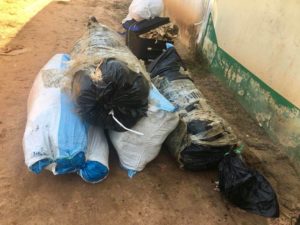
The arrestees are one Senegalese Justine Jatta, and three Gambians- Paul Gomez, Abdou Tamba and Alfu Sarr. The arrests were made in Sibanor, Mandinaba, Brikama and Sanyang.
The agency says there has been positive gains in their quest to curb the menace, which poses serious threat to the societies. Many have been arrainged in court on cases relating to drugs with some acquitted and others serving jail terms. However, the agency says it is faced with major challenges, key among which is lack of mobility.
While attributing the arrest to what he calls a collective efforts with their sister forces, Commissioner Mawlud Faal of the National Drug Law Enforcement Agency in West Coast Region calls for all hands to be on deck to end drug trafficking activities. He says the suspects will appear in court as soon as the investigation is finished. He warned landlords and vehicles owners to be careful who they harbor or who uses their vehicles.
Famara Colley is Officer Commanding Immigration. He warned Gambians and non-Gambians to be law-abiding. The arrest, he said, is a result of joint efforts by the security forces.

In a similar development, over 600 grams of cocaine was recovered from other suspects. Commissioner Faal says, the suspects’ identifies could not be revealed as it might tamper with the investigations.
VP Darboe to find out whether Barrow Traveled On Charter flight To Attend UN Meeting
By Omar Wally
The Vice President, Ousainou Darboe said he saw President Barrow board a flight but he is not sure if it was a charter flight.
‘My findings will dictate my take on this issue’. He told The Fatu Network on Friday
Please take a listen to the excerpts.
Alpha travels Clarifies Standard Newspaper Reports
PRESS RELEASE
Standard Newspaper article of September 13, 2018 captioned “ANGRY PILGRIMS DEMAND REFUNDS FROM HAJJ OPERATOR,” alluding to supposed unhappy customers of our agency, Alpha Travel, complaining about not being transported via airplane for the Dakar to Banjul leg of their return from Hajj has been brought to our attention. The clients were transported by air-conditioned buses, the trip took 5-6 hours from Dakar to Banjul.
Alpha Travel wishes to express profound regret and apology caused by this mishap. Measures were put in place to avoid such a situation but because of circumstances beyond our control, we ended up being short on delivery. We take full responsibility for the inconvenience caused – We are sorry.
This agency prides itself on its customer service, affordable prices, and quality of delivery – best routes, etc. Our Hajj package was the cheapest – charging from D24,000 to D42,000 lower than any other agency. In Mecca, our hotels were closer to the Haram than any other agency, and in Medina, just a walking distance from the religious sites.
Throughout the course of the Hajj process, Alpha Travel had agents on the ground whose job was to answer questions, guide pilgrims, and address any concerns. The agency fully engaged the customers on all issues including the lack of air transport for the Dakar to Banjul leg for the preferred dates. Considering the not-so-good choices the agency was confronted with, the only option available was to transport the pilgrims via buses to their final destination with all their belongings intact.
This is a teachable moment for Alpha, and all processes are being fully re-evaluated to avoid a repeat of such case. Negotiations are already being undertaken with airlines to concretize travel arrangements, staff training is being planned to build on improved services, we will soon engage the Hajj Committee in The Gambia with a view to stay ahead of the curve, and a process is in place to update our technology for quality control. In Sha Allah, all can be rest assured next year’s Hajj will be different in this regard. Again – our sincere apologies to all.
President Should Speak the Language of Democracy and Accountability
Over the past few weeks and months Pres. Barrow made several statements that directly point to dictatorial tendencies and inclination towards corruption that are utterly unbecoming of a president who is immediately following one of the most corrupt and autocratic misleaders ever seen in Africa. Therefore, these statements by Barrow raise concern as to his quality of leadership and the future of the Gambia. Hence it is necessary that Gambians are alerted to these unfortunate statements so that we do not become complacent again while a budding dictatorship is brewing under our feet.
Few months ago, in Turkey, Barrow condemned citizens who criticised his government as insincere and attention seekers. Few weeks later he directly attacked the person of Dr. Ismaila Ceesay by falsely asking where the man was during the days of APRC Dictatorship. Not long ago he also threatened that he is ready for anyone who would cross his line. Last week he told GRTS that his Government’s spending of over 300 million dalasi on travels was insignificant because other countries spend more. This week he went further to say that striking teachers are testing the waters and going too far in abusing democracy and that his government will not tolerate such strikes.
These statements are indeed tyrannical, condescending and purposely geared towards perpetuating corruption and bad governance in our country that no citizen must allow. Barrow must accept, as a president who had sworn to defend the Constitution of the Gambia, that all citizens have fundamental rights and freedoms as stipulated in Chapter 4 for which his Government, under Section 17 is bound to respect, protect and fulfil those rights. Hence it is utterly unacceptable that Pres. Barrow would condemn any citizen for merely exercising those rights as stated in our Constitution.
Barrow can only disagree with the lawful opinion or actions of citizens, but he cannot deny citizens from expressing their lawful opinions and performing their lawful actions. Every Gambian has a right to strike in line with the Constitution and Barrow cannot take that right away. Whether a citizen was vocal against Jammeh or not cannot be used as the yardstick today to determine who should criticise Barrow or not. Hence Barrow’s attacks on citizens must be exposed and condemned for what it is, Dictatorial.
Barrow and his Government have consistently lamented that they inherited a tattered economy and an empty coffer. For that matter he has been going around the world to seek help. Therefore, it is utterly wrong and immoral for that same government to be seen spending millions of dollars on travels alone. If China or UK or Ghana can afford millions of dollars for travels that does not mean the Gambia can and should also spend even thousands of dollars. The Gambia is Gambia. Ghana is Ghana just like every other country is unique. Therefore, we cannot equate ourselves with any other country especially when it comes to bad practices such as wasteful spending.
If indeed it is true that the Jammeh regime was corrupt, wasteful and autocratic as claimed by Barrow and his Government, then what we do not expect Barrow to do is to be also corrupt, wasteful and autocratic. Our expectation is that this Government should be open, honest and democratic as well as become efficient, responsive and accountable to Gambian citizens. This is the only path we expect this Government to follow. But it appears Barrow is deliberately closing his eyes to blatant inefficiency, corruption and abuse in his own Government only to now face citizens with venomous attacks.
Let Pres. Barrow realise that this Gambia never belonged to Dawda Jawara and Yaya Jammeh alone and surely this Gambia does not belong to Adama Barrow alone. Let Barrow realise that he was elected on the basis of our Constitution which states in Section 1 that the Sovereignty of the Gambia resides in the people of the Gambia. This section went further to state that the Government derives its authority and legitimacy from the people of the Gambia and that the Government performs it functions only on behalf of and for the welfare of Gambians. Hence Pres. Barrow must be told that he must humble himself and submit himself to the sovereign will of Gambians.
Gambians have a right to criticise him in the most severe and unpleasant way they think fit and he is bound to accept those criticisms by responding to the issues and not threatening and attacking citizens. We want only true democracy in the Gambia. We do not want a kind of democracy such as in many other African countries where citizens enjoy all civil liberties yet live in poverty and deprivation thanks to corrupt, inefficient and dishonest governments and leaders. Gambians must not only enjoy civil and political rights but that those rights and freedoms must also translate into social and economic benefits to enable citizens enjoy the highest standard of living. This is the only mission before Barrow that he must fulfil or betray.
The Government of Pres. Adama Barrow is annoyingly corrupt, inefficient and unresponsive. The facts on the ground attest to this sad and unfortunate reality. His Government is not being transparent to citizens on a number of fundamental issues and continues to ignore the genuine concerns of citizens. It is only when citizens cry out that his Government will come up with a crisis management response after the damage has already been done. The recent memo from the Minister of Finance on foreign travels is one example. The release of a paedophile was another.
Meantime, contrary to public outcry, the Government has gone ahead to sign a contract with a dubious foreign company that is under criminal investigation in their own country to produce our national ID cards. Both the President and his Minister of Justice continue to give the misleading narrative that just because Semlex had a contract with the former corrupt regime of Yaya Jammeh therefor this Government is bound to comply with that contract less they be accused of breach. Yet the Minster of Justice, as a lawyer knows that every contract has termination clauses that either party can invoke. Why didn’t they do that given the potential national security implications of giving national documents to a foreign company?
Gambians must stand up to demand transparency, accountability and responsive government now. After 50 years of nationhood the standard of living in this country is unbearable and unacceptable thanks to bad leadership since 1965. Therefore, we must not allow another government and president to emerge that seeks to throw the usual dust into our eyes while they bastardise our resources and undermine our lives and damage our future with prolonged poverty, deprivation and high cost of living.
We need a president who values and upholds the principles and standards of democracy and accountability and respects each and every Gambian. So far Barrow has drifted away from these principles and citizens must not condone that in anyway. The Gambia has no reason to be poor and underdeveloped. We are a highly endowed country with natural resources. We have a highly capable citizenry. Unfortunately, we have never had an effective government and an efficient leader who is democratic and accountable which is the very and only reason for our poverty and underdevelopment. We expected that Barrow would be that kind of a president but unfortunately this has not been the case so far.
Stand up for democracy and accountability!
For the Gambia Our Homeland.
Memorandum and Proposal to the Constitutional Review Commission:
Part 2: Separating the Office of the Attorney General & Minister of Justice, Office of the Director of Public Prosecutions independent Office:
Alagi Yorro Jallow
In our constitutional democracy and by the doctrine of the separation of powers, the independence of the judicial branch is sacrosanct and indispensable to the rule of law, democracy, and good governance. Since gaining independence in 1965, the Gambians have witnessed indisputable evidence of attempts to undermine and violate the principles of the separation of powers and the independence of the judicial branch.
The Gambia inherited its legal system from Westminster, which introduced a mechanism to avoid any conflict of interest because the attorney general is a political appointee, usually a member of the Cabinet/ Parliament, appointed by the Prime Minister to be part of the government. He/she acts as the chief legal adviser to the government. But a separate body that is operationally independent from the attorney general makes prosecution decisions. The attorney general does not influence these prosecution decisions other than in a very small number of offenses.
Separating the office of the Attorney General and the Office of the Director of Public Prosecutions needs an urgent review regarding the prosecution practices in the Offices of the Attorney General to ensure that a conflict of interest can be avoided. This conflict is caused by the fusion of two roles into one office. More specifically, the Attorney General provides legal advice to the government and, at the same time, decides whether to prosecute a case or not.
I suggest and propose the CRC, the Office of the Director of Public Prosecutions be independent of the minister of justice. This office, which is supposed to be independent of the executive branch, investigates and prosecutes certain categories of cases and allegations of corruption and other criminal wrongdoing, including those involving alleged violations of the Public Procurement Act and cases implicating political officeholders and politicians.
The view that I will seek to advance is that of “formal independence” or the complete autonomy or separation from the Attorney General that appears to exist under the provisions of the new Constitution as the Attorney General retains responsibility over all prosecutions. However, “substantial independence” by way of impartiality and neutrality may yet be achieved through a firm political will, definite intentions, and resolved commitment by the government to allow the officeholder sufficient freedom to carry out his or her mandate with little to no outside interference.
I have reiterated my previous call for the government to decouple the Ministry of Justice and the Attorney General’s office from the office of the Director of Public Prosecutions by saying that doing so is the first step to winning the fight against corruption.
Gambians deserve to have an office for an Independent Prosecutor. That is what we are talking about here: separating the two offices by law and adding this separation to the reforms in the new Constitution so that it happens.
Several Commonwealth countries separate these two roles. As in the United Kingdom, for example, the Australian Attorney General is a politician whose role is to advise the government. But prosecution is decided by the Director of Public Prosecutions who operates independently from the Attorney General and the political process.
For countries that seriously want to ensure that justice is done and is seen as having been done, the roles of the Attorney General and Public Prosecutor are separated. This is the direction that we should go to give credibility to prosecution decisions. If the Attorney General holds the power to decide on prosecutions, the problems faced by any Attorney General today will continue to be faced by all future attorney generals, regardless of how honest they are.
This situation is bad for both the Attorney General and the person in question. The Attorney General will face criticisms, even if he or she is acting professionally and honestly. In contrast, the person in question will continue to be doubted, even if there is truly no case against him or her.
A conflict could occur if the person being investigated is in the government. If the Attorney General is advising that person in government, many people will doubt his or her independence when deciding whether to prosecute that person.
To conclude, my respectful position is that complete independence is what Gambians require for the proposal of new provisions to the Constitution demonstrating strong political will that allows an office holder (DPP) sufficient liberty to work with little to no political or other interference.
The offices should function with sufficient latitude to prosecute members of the government—if they fall foul of the law. The success or failure of this proposal would go a long way towards resolving several issues: 1) whether to separate the office of the Attorney General from that of the Minister of Justice, 2) create an independent office for a Prosecutor General, or 3) grant the Attorney General independence from the executive branch and the President in exercising all prosecutorial powers.
It is my personal and firm belief that the new Gambia should introduce this proposal into the new Constitution and take away the criminal prosecution function of the attorney general’s office and vest it in the separate and independent office of a director of public prosecutions. Until we achieve this constitutional change, I certainly welcome the separation of the office of the director of public prosecutions with a specific mandate to work with the police and other statutory investigatory agencies and prosecute public sector corruption and crimes committed under our procurement laws.
All prosecutions would, of course, be in the name of the Republic of Gambia and handled by the director of public prosecutions, in accordance with the Constitution.



